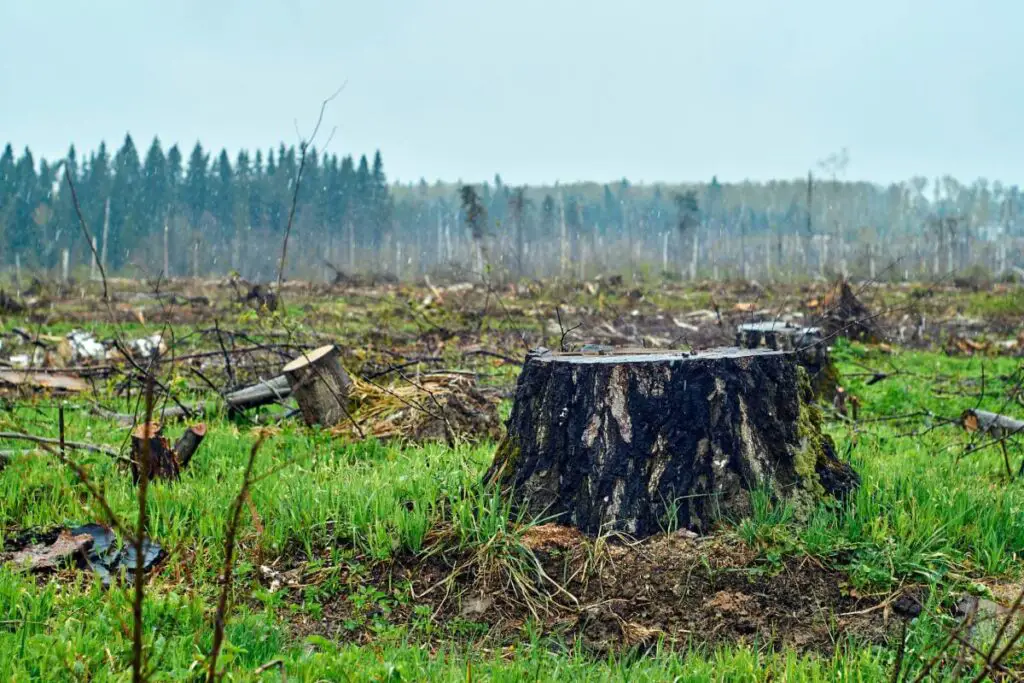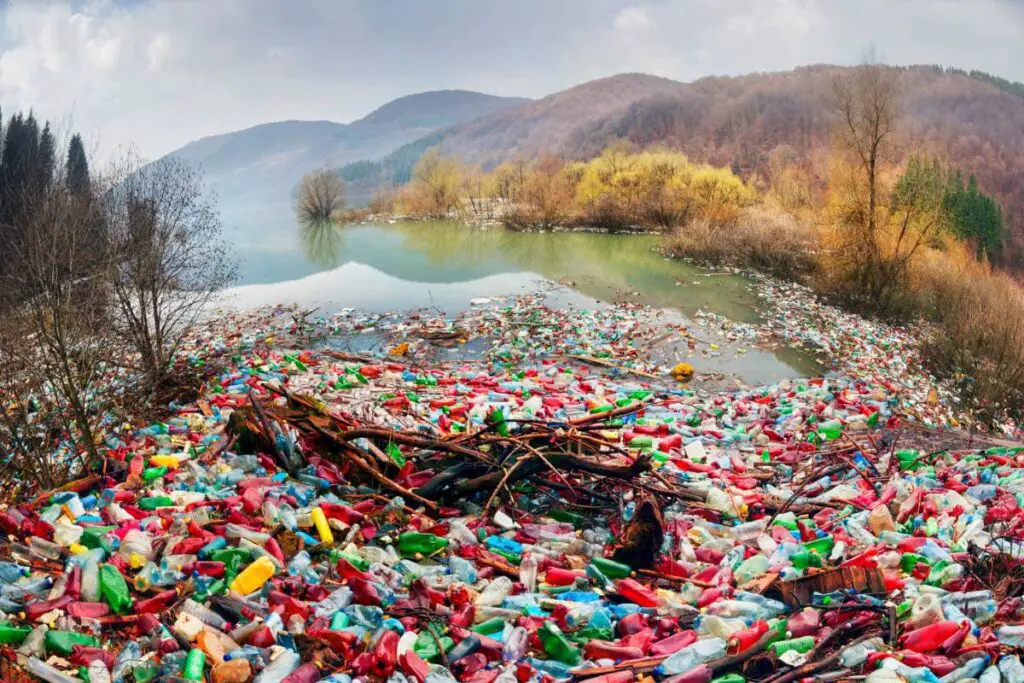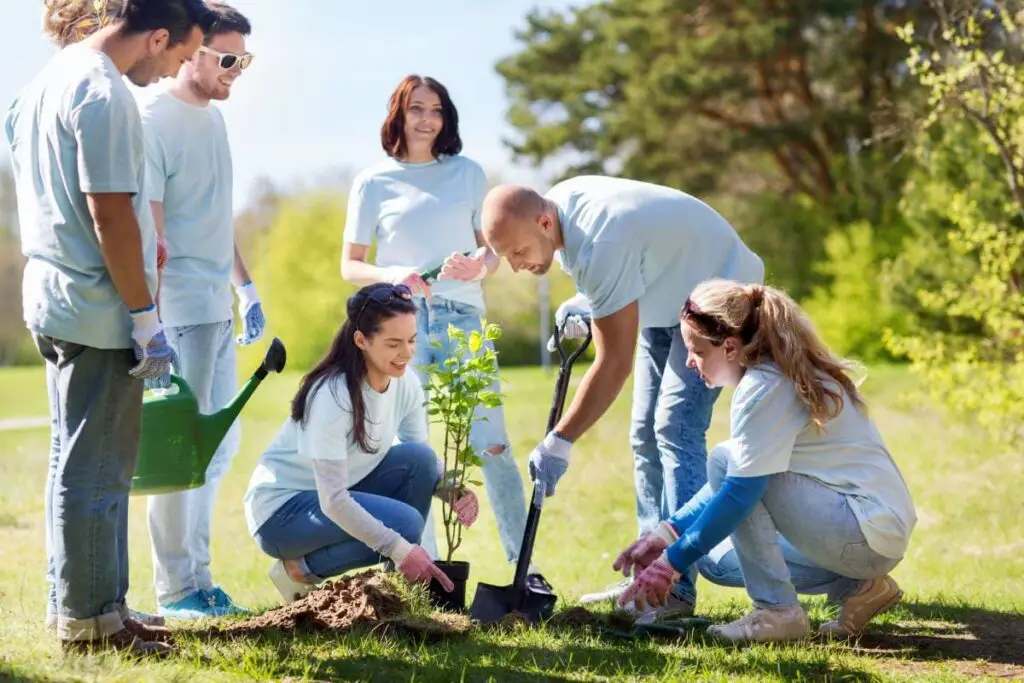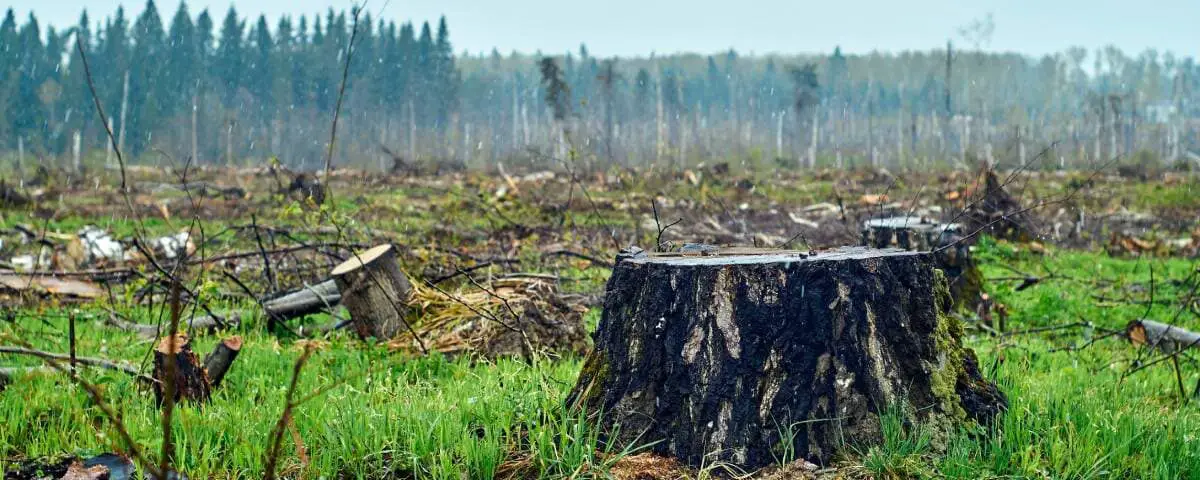Humans have unquestionably affected the environment in a negative, almost irreparable way. The negative human impact on the environment is apparent in our tendency to throw away the foods we consume, the fuels we use, and the products we buy.
The negative human impact on the environment includes phenomena such as overpopulation, smog, deforestation, noise pollution, water pollution, and oil spills. These can affect everything from the air we breathe and the water we drink to the soil needed to grow our food.
Continue reading to learn more about man’s negative impact and how we can lessen it.

Overpopulation
Overpopulation can cause a wide array of negative effects on the environment. The most noticeable would be green spaces. Another pressing issue related to overpopulation is the increase in new constructions that pull more electricity and require more resources to run. These phenomena both lead to increased negative human impact on the environment.
Smog
“Smog” was first coined in the early 1900s and was a mixture of the words smoke and fog. This was generally created by coal, the primary heating source for almost all businesses and homes at the time.
Not only is smog extremely dangerous to inhale, but it can also kill plants. Smog blocks sunlight and does not allow plants to get the necessary nutrients they require to survive. When we breathe in the smog, it can aggravate illnesses such as asthma and even cause emphysema.
Smog covers vehicles and buildings with a layer of a soot-like substance, causing everything to appear dirty.
Deforestation
Tied hand in hand with the overpopulation impact comes deforestation. Reducing forests and green spaces to make room for more houses and businesses is a colossal issue. It can also cause an upset in the animal kingdom as it destroys the habitats of birds and other creatures that live in the forests.
More people means more housing is needed, and thus more space is taken up. The first thing that has to be done when a new build is required, is to clear the land of all living things, such as trees, wild plants and grass. That means the disappearance of small creatures and insects which lived off the cleared land.
Plants and trees use carbon dioxide and disperse oxygen, creating a natural air filter. By engaging in massive deforestations, we cut off our own oxygen supply, increasing the negative human impact on the environment .
Forests and trees also serve as screens that absorb noise and sound, which can lead to pollution.
Noise Pollution
Noise pollution is an impact few people think about, but it can negatively affect the environment and our quality of life. Loud noises, such as heavy machinery or masses of cars on an interstate highway, can startle the animals, scaring them away from their homes.
Between the noise pollution and deforestation, more and more wild animals are beginning to be seen roaming around in cities looking for food.
The adverse effects on humans can be both physical and mental. Loud noises, especially constant ones, can lessen your ability to hear. It can also raise stress and anxiety levels, often gradual and unnoticed until it is too late.
Water Pollution
Many people don’t realise water pollution is as bad as it is until it affects their drinking water. But washing in polluted water can have devastating effects on our health. Tons of trash make it into our waterways daily. This trash depletes the open space for water animals to inhabit, reducing the amount of food available and impacting the cleanliness of water on a massive scale.

Most trash that makes its way into the water is plastic, primarily plastic drinking bottles. These plastics break down and slowly poison the water, killing animals and their food sources in the process.
Humans can’t use this water to drink or cook, or carry out any of our day-to-day routines. As a result, if this phenomenon continues to become more predominant, our quality of life will suffer.
Oil Spills
Oil spills are tragic and cause unimaginable harm to the environment, whether spilled in the water or on land. They create a film that coats the ground and animals, making it impossible for birds to fly or for plants to get sunlight and nutrients. It does not wash away with rain. Animals will attempt to clean themselves and ingest the oil, which poisons them.
Cleaning an oil spill in the water is a daunting task. Two boats will tow a collection boom out into the water. They guide the concentrated oil into the center of the boom. They then use a skimmer to pick up the oil from the water.
Ways To Reduce the Negative Human Impact on the Environment
There are many ways for humans to reduce their impact on the environment. Here are some ways to reduce negative impact.
Recycle/Reuse
We have known the importance of recycling for a long time, and almost everyone has participated in it in some form or fashion. Recycling products reduces the need to create new ones. This leads to less natural resources, like trees, being used.
Upcycling
Upcycling, also known as repurposing, is an incredible way to save on resources. It does take a bit of creativity and fun, and it is worth it. A great example is using an old dresser to turn into a reading chair with a shelf on the bottom for books. Another fun project might be an old kitchen table with silverware repurposed as a writing desk. The possibilities are endless.
Walking/Biking
Walking or biking more is a great way to save on gasoline resources, and as a perk, it can double your exercise for the day and even improve your mood substantially. Sometimes, because of the time constraints in bigger cities, walking may not be the best alternative. In these situations, you can turn to biking. With less gasoline usage comes much cleaner air and a lot less smog.
Line Drying Laundry
Here is one that not too many people think about. Hang drying your laundry can save hundreds of dollars in electricity annually from not running a clothes dryer.
Second, not running the dryer helps keep the house cooler, and your aircon does not have to work as hard to maintain desired temperatures. Not only will hang drying help give your arms (and sometimes your waist from bending down to the basket) a workout, but your clothes will smell fresher every time.
Eating Sustainably
This one can be tricky. We all like convenience, and those prepackaged meals can come in handy in our busy lives. However, If we take the time to eat home cooked meals, it can reduce the amount of trash we dump on the world through pre-packed boxes or fast food containers.
Using reusable sandwich boxes instead of sandwich baggies helps reduce waste. Using reusable water bottles can help as well. Making dishes from scratch, like spaghetti sauce or even pasta, can help reduce packaging wastes from store-bought products.
Plant a Tree
We are human, we inhabit the earth and we use its natural resources. So why not put back what we take out? Planting a tree can help reduce toxins in the air, create more oxygen and create a home and shade for many animals. You can plant them in your yard and maybe create a green space where plants and trees abound in your neighborhood.

Go Thrifting
Yes, even thrifting can help reduce your environmental impact. By reusing products other people no longer have a use for, you can reduce the number of items that end up in landfills. This reduces the need for more energy to produce new items. It can be anything from furniture to clothes to small household appliances. Moreover, it can reduce the amount of money flying out of your wallet.
All of the above reduce negative human impact on the environment. They also help us stay healthier. Whether it is by drinking cleaner water, breathing cleaner air, or eating healthier food, it all leads to a healthier lifestyle. We may cut down on the number of medical prescriptions we need and the number of plastic medicine bottles used in the process.
Final Thoughts

We must be aware of how our actions affect our survival and the survival of the plants and animals that live with us on mother earth.
We can reduce the negative human impact on the environment by taking small steps in the right direction. Simple things like recycling, reusing and living more sustainably can make a big difference. Using reusable water bottles, hanging clothes to dry instead of using a dryer, and walking instead of driving all help.

